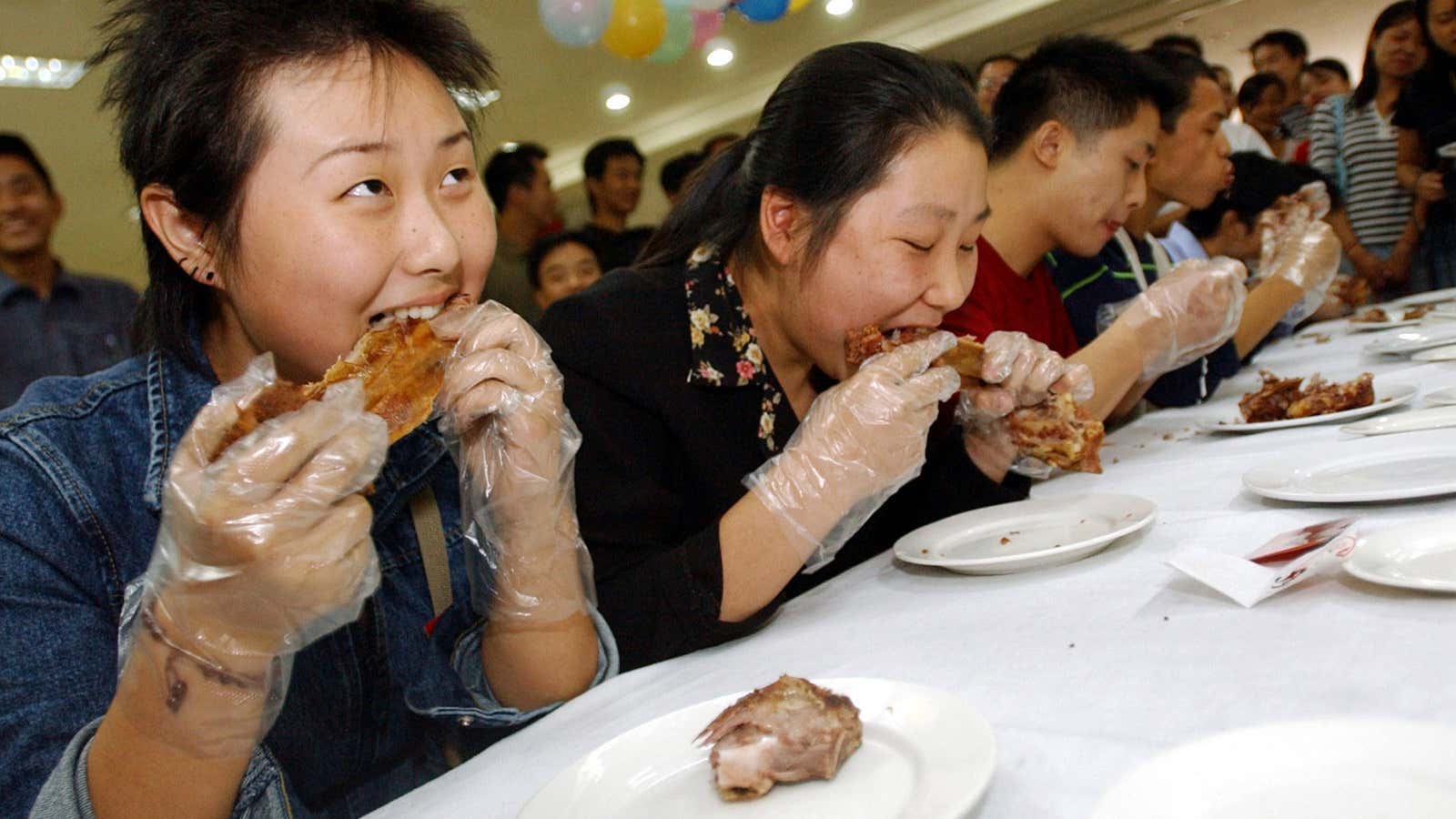David Cameron’s latest effort to boost British exports—this time with a massive trade delegation to China—has produced some good, if unexpected, news: China agreed to allow imports of pig semen from Britain, thus far banned due to safety regulations. The prime minister’s office says the deal, which covers both semen and live pigs, could be worth £45 million ($74 million) per year.
Why does China, which accounts for half of the world’s pork supply, need pig semen from halfway across the globe? Chris Jackson, export manager of the British Pig Association, tells the Financial Times (paywall) that British pigs grow faster, eat less and reproduce more rapidly than their Chinese counterparts. Using fewer sows to raise more pigs means using less grain to feed livestock. It also means more meat in a country where rising incomes are driving demand for protein.
The highlight of today’s announcement, however, is quite literally in the footnotes. Semen alone will probably account for less than £10 million of the deal, according to Jackson. A bigger source of income, according to another pig industry source cited by the FT, will be trotters, or pigs’ feet, which are often discarded in the UK but popular in China. Indeed, a report published by Canada’s agriculture authority found that China’s largest pork-related import in 2011 was offal (pdf). At nearly $800 million, offal imports were worth more than four times as much as the next item, frozen pork cuts.
This isn’t China’s first effort to ramp up its supply of pork. Despite being the world’s largest producer of the pink meat, China still consumes more than it produces; it has been a net importer since 2008. According to Rabobank, China accounted for 5% of of the global pork trade (pdf p.18) last year. But this is growing; imports doubled from $1.1 billion in 2008 to $2.1 billion in 2011.
In September, a Chinese company paid $4.7 billion to buy America’s Smithfield Foods, the world’s largest pork-producing company. And in case something disrupts global supplies, China also has a strategic pork reserve to control domestic prices.




